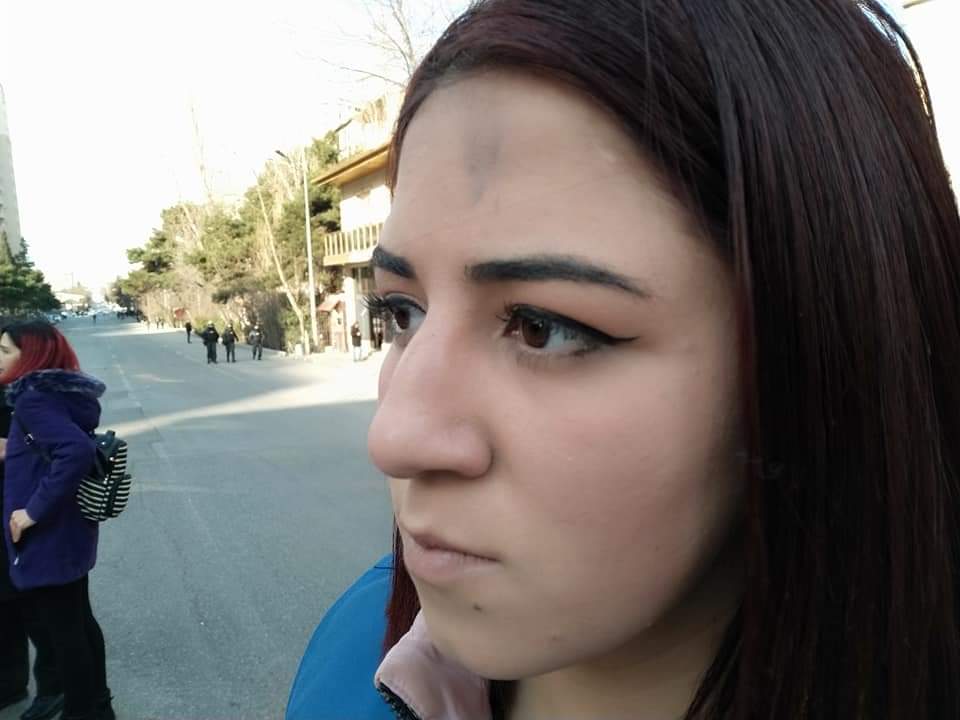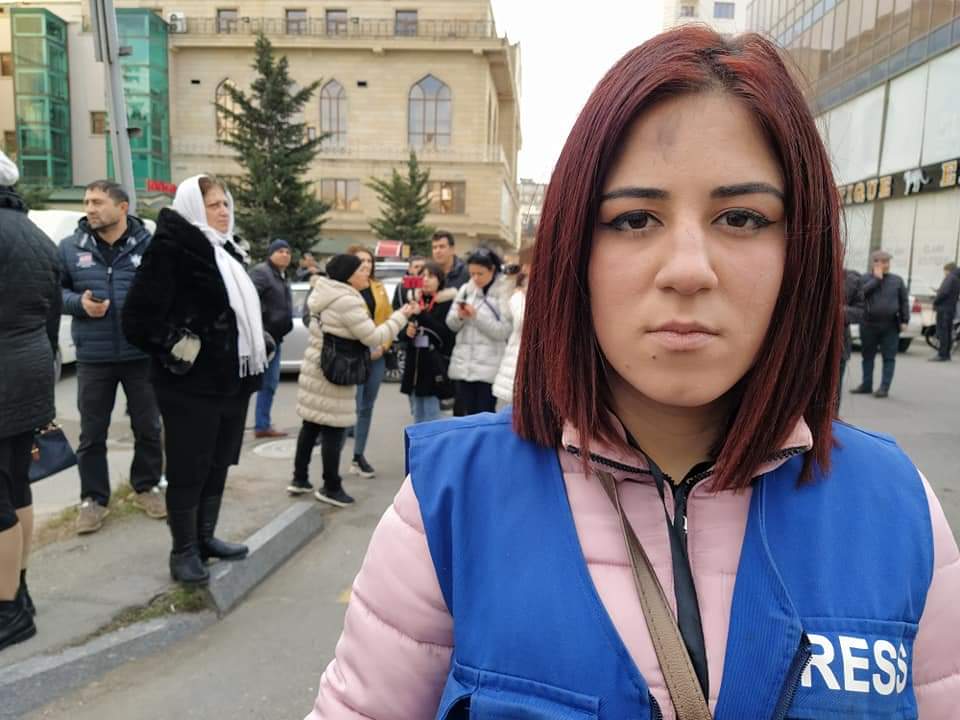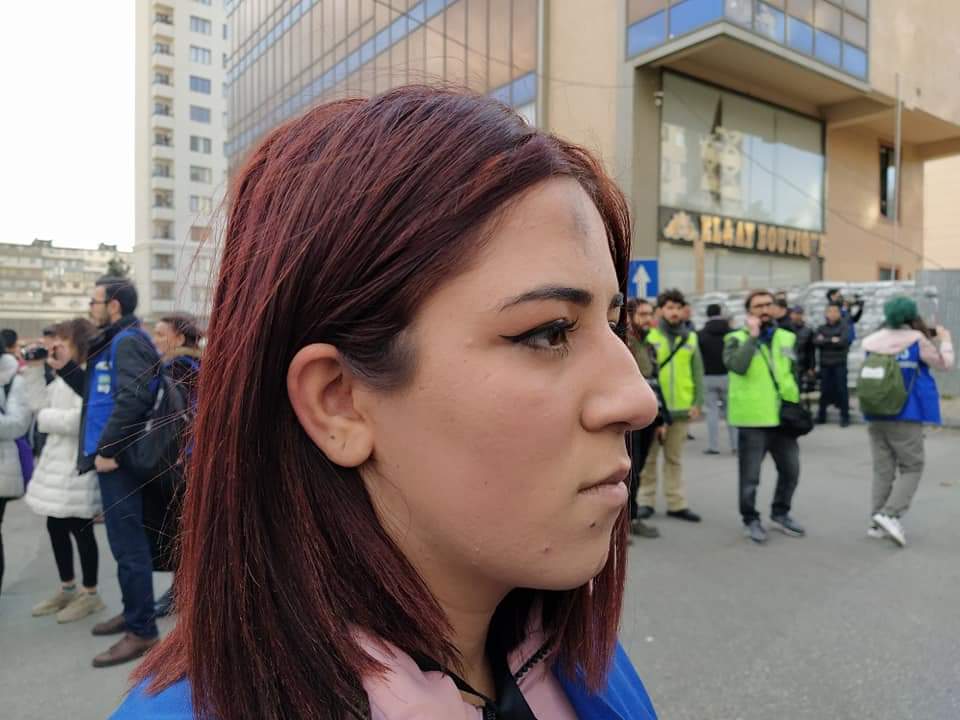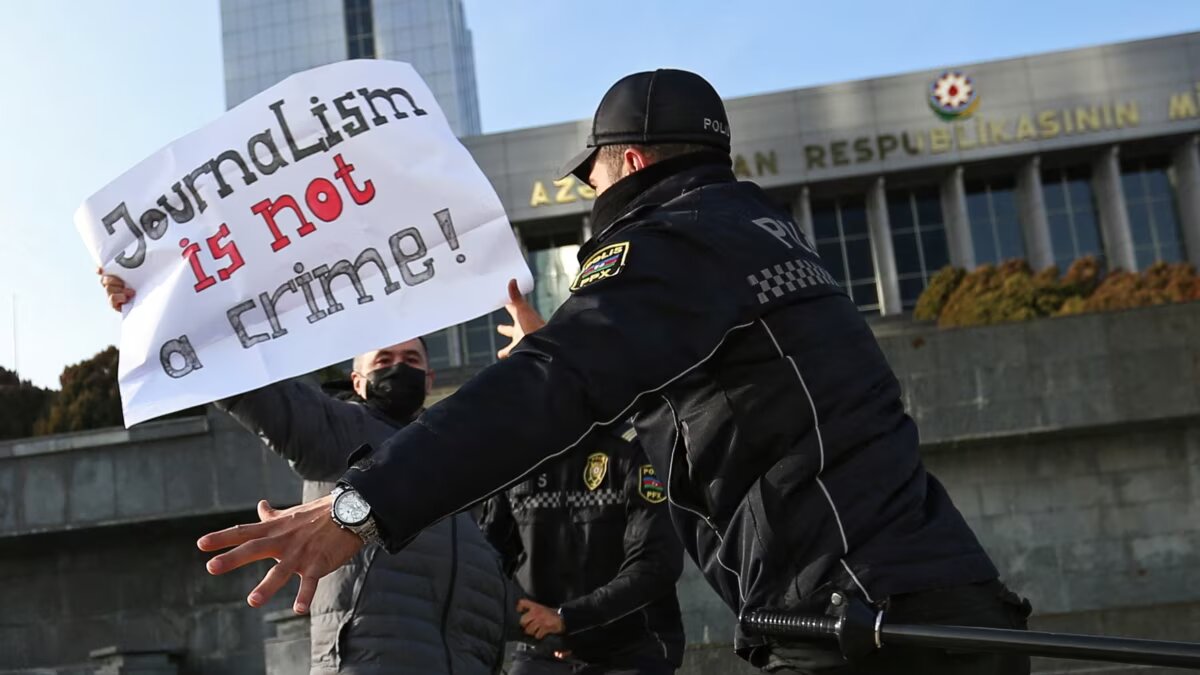Fatima Movlamli, 23 is an independent journalist in Azerbaijan who, like her colleagues, supports the Media Law but also acknowledges that it hinders her professional activity. She has faced numerous difficulties over the years, including physical violence from the police while covering rallies, protests, and political events without any political motive. Sometimes, she was even taken to the police station, and her activities were restricted. These measures were taken to limit her professional work. Despite these challenges, she has collaborated with several media organizations, (JAMnews, KANAL 13, Toplum TV which is located in Azerbaijan) and many of her reports have been published.
"I got my first interview when I was 17 years old and have been working as a journalist for 6 years. During my university preparations in another field, I developed a passion for journalism and eventually decided to pursue it as my career. My desire and purpose were to provide people with a more complete and unbiased view of news, events, and society, as television often presents information in an incomplete and one-sided manner. I aimed to show the truth as it is." This is a new Text block. Change the text.
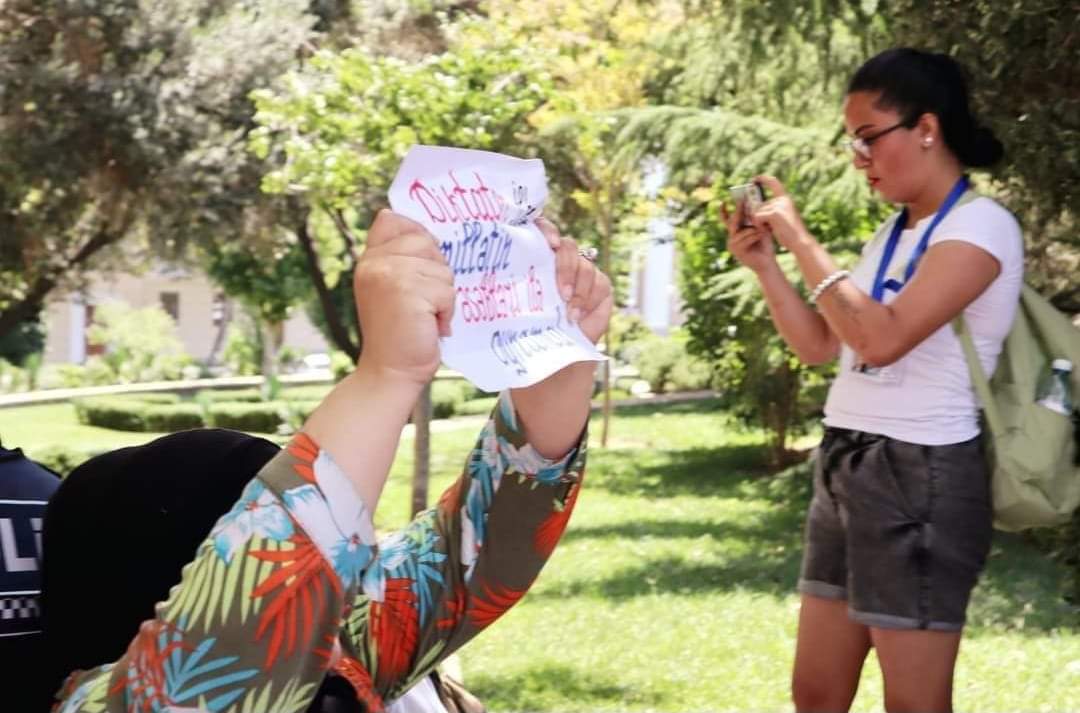
Movlamli notes that the police were unable to prove the legality of her detention and physical violence before the new media law was adopted. They simply informed her that they were ordered to detain her, leaving unanswered questions about who issued the order and why.

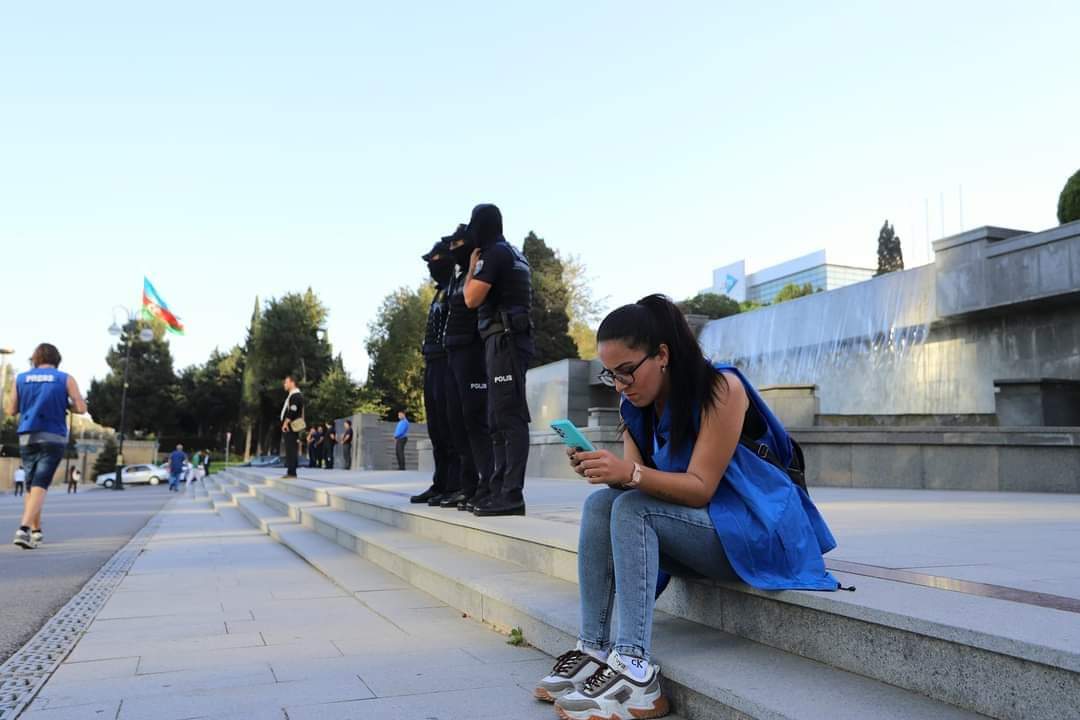
Even before the law on media was adopted, independent journalists faced difficulties in their interactions with state institutions, often receiving no response to their official requests and being denied entry to official events. Fatima highlights the long-standing hostile attitude and discrimination against independent media in Azerbaijan. With the new media law, these prohibitions have been legalized.

According to the media freedom index released by the Reporters Without Borders Organization, in 2023, Azerbaijan moved up three places, took 151st place among 180 countries, and was among the countries with "very bad" media freedom. The indicator for Azerbaijan has been like this for the last 10 years, and only in 2014 was the situation assessed as "bad". The head of the organization's Eastern Europe and Central Asia office announced that Azerbaijan's progress by several steps was due to the worse results of other countries."
Seymur Kazimov, an experienced journalist with 15 years of expertise in conflict reporting and international relations, expressed his pessimism about the developments in the Azerbaijani media landscape. He believes that the new media law restricts the fundamental freedoms of media outlets and individuals. The challenges faced by journalists in Azerbaijan are compounded by the political, economic, and social situation. Nonetheless, the younger generation of journalists remains hopeful, striving for freedom and independence, and actively participating in training and seminars.
Alasgar Mammadli, a lawyer specializing in media issues, raised concerns about the new Media Law. He criticized the numerous strict and illegitimate requirements for journalists' registration, emphasizing their non-compliance with the Convention. Additionally, the law fails to address concerns about the structure, independence, and regulation of licensed and unlicensed journalistic activities.
The new law aims to create a unified register of journalists, mandating them to register and work under an employment contract, service contract, or TIN. The law was prepared by the newly established Media Development Agency (MEDIA), replacing the former State Support Fund for the Development of Mass Media.
Representatives of the Media Development Agency defended the draft law, stating that it does not contradict international law or threaten freedom of expression. They emphasized that the state wants a strong media with journalists' words trusted in society.
Critics argue that the closed processing of the draft law was aimed at restricting freedom of speech in Azerbaijan. They highlight the lack of open dialogue with the authorities during the law's preparation and emphasize the need for public discussion.
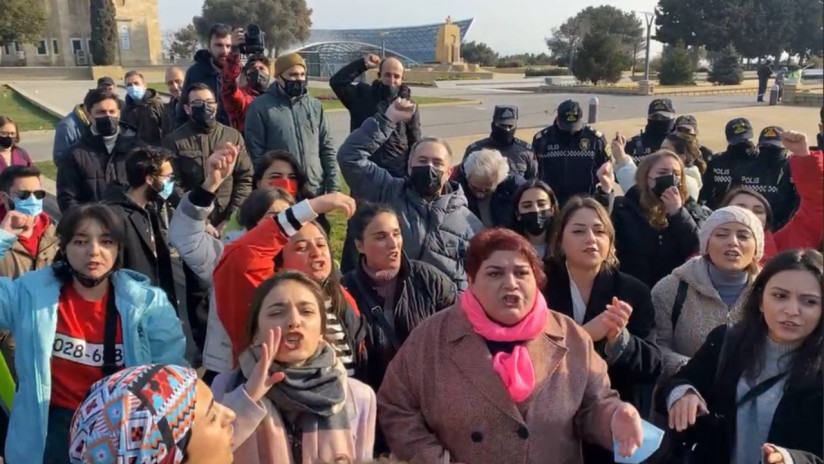
Arif Aliyev, chairman of the Union of New Generation Journalists (UNGJ), expressed skepticism about the effectiveness of the new law, considering the existence of extralegal means influencing media development. He believes that obstacles hinder journalists' freedom in the new project, and past experiences and limitations raise concerns.
Aytan Mammadova, a freelance investigative journalist, emphasized the need to reconsider and address the restrictive provisions in the Media Law to promote media development. She believes that journalism is a profession that cherishes freedom and cannot thrive without it. Aytan highlighted the lack of independent newspapers and the prevalence of self-censorship within media organizations, influenced by the politically influenced and economically dependent media.
According to Aytan, journalists should specialize in specific fields to maintain their independence and uphold the dignity of their profession.
The preparation of the new Media Law began in January 2021 and was entrusted to the newly established Media Development Agency (MEDIA). The law consists of nine chapters and 78 articles and was submitted for public discussion on the website of the Milli Majlis.
Fatima Movlamli, along with other independent journalists, refuses to go through the registry due to their objections to the law. Despite the obstacles and restrictions, she remains committed to her work, expressing her protest whenever necessary
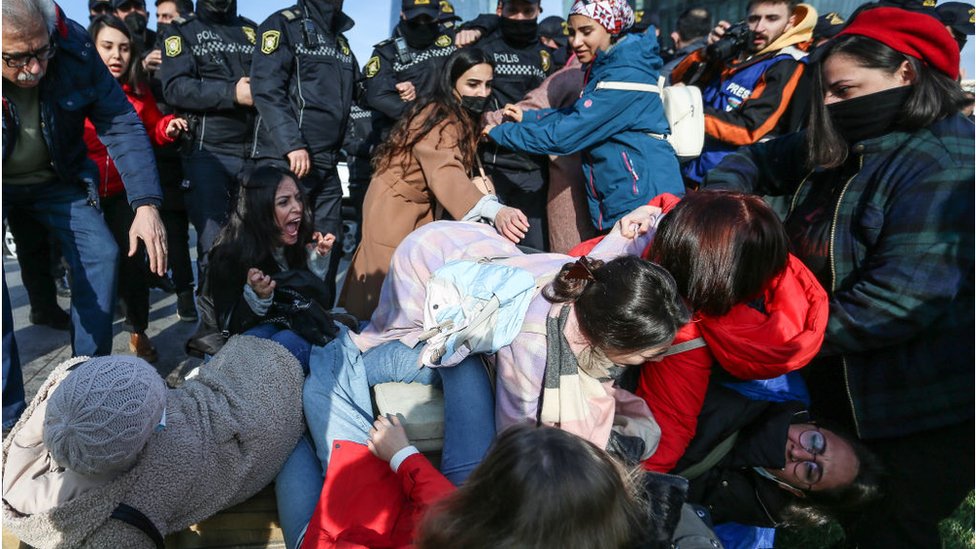
The Venice Commission, the Council of Europe's body of constitutional legal experts, expressed concerns about the new Media Law in Azerbaijan. They highlighted its problematic focus on restricting media activities instead of enabling their role as "public watchdogs." Many provisions were deemed inconsistent with European standards on freedom of expression and media freedom, leading to a call to reconsider the law's implementation.
Leyla Mustafayeva, an investigative journalist from Azerbaijan, is renowned for her fearless reporting and unwavering commitment to press freedom. Throughout her journalism career, she has dedicated herself to shedding light on critical social and political issues, with a mission to hold those in power accountable. Her husband, Afgan Mukhtarli, faced threats and abduction due to his critical reporting on government officials in Azerbaijan. Despite the challenges and dangers they encountered, Leyla continued to be a vocal advocate for press freedom and human rights, tirelessly working for her husband's release and raising awareness about media repression.
Her story vividly highlights the risks that journalists and their families confront in countries with limited press freedom, serving as a powerful reminder of the importance of defending journalists' rights globally.
Mustafayeva says recent changes in the journalism landscape in Azerbaijan have further heightened concerns. The state's control over the media is growing stronger, effectively legitimizing the government's repression of critical journalists. These changes stand in contrast to the provisions of the European Convention on Human Rights, to which Azerbaijan is a party. The law now requires that journalists should not have been convicted of serious crimes, but in the past, journalists have been falsely accused of such crimes to hinder their work. The ultimate aim appears to be to restrict the activities of journalists and discourage those interested in working independently in this field.

